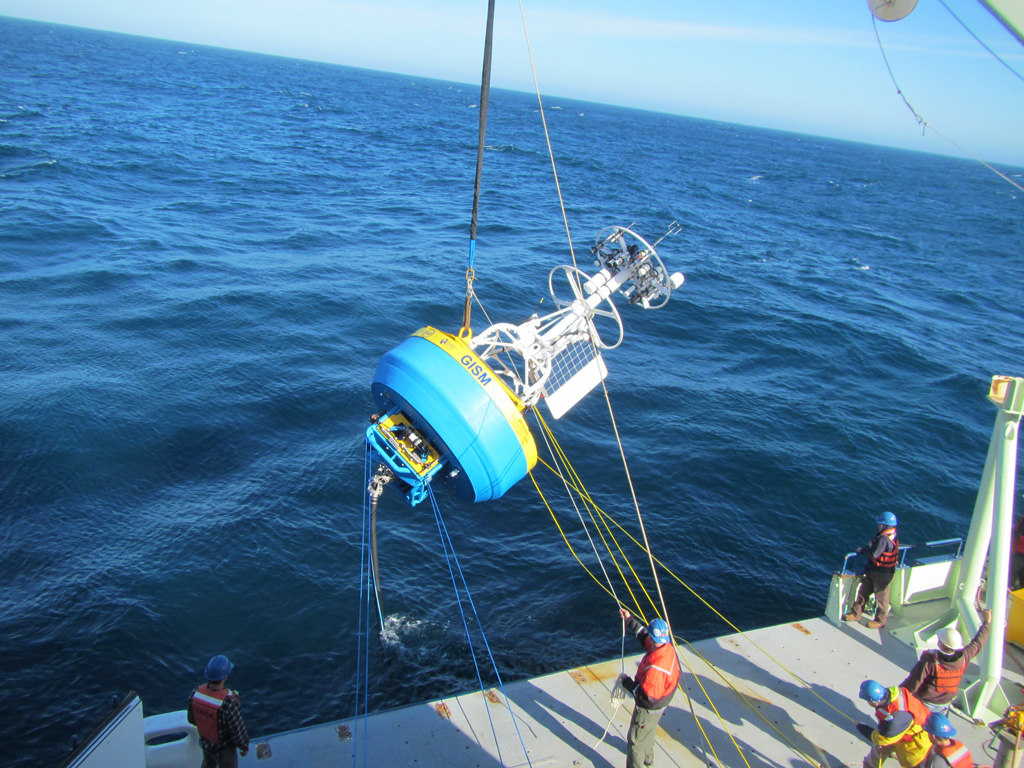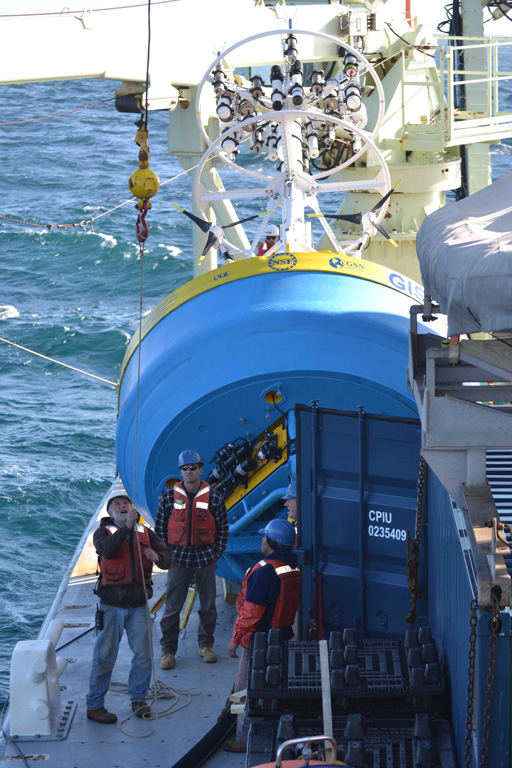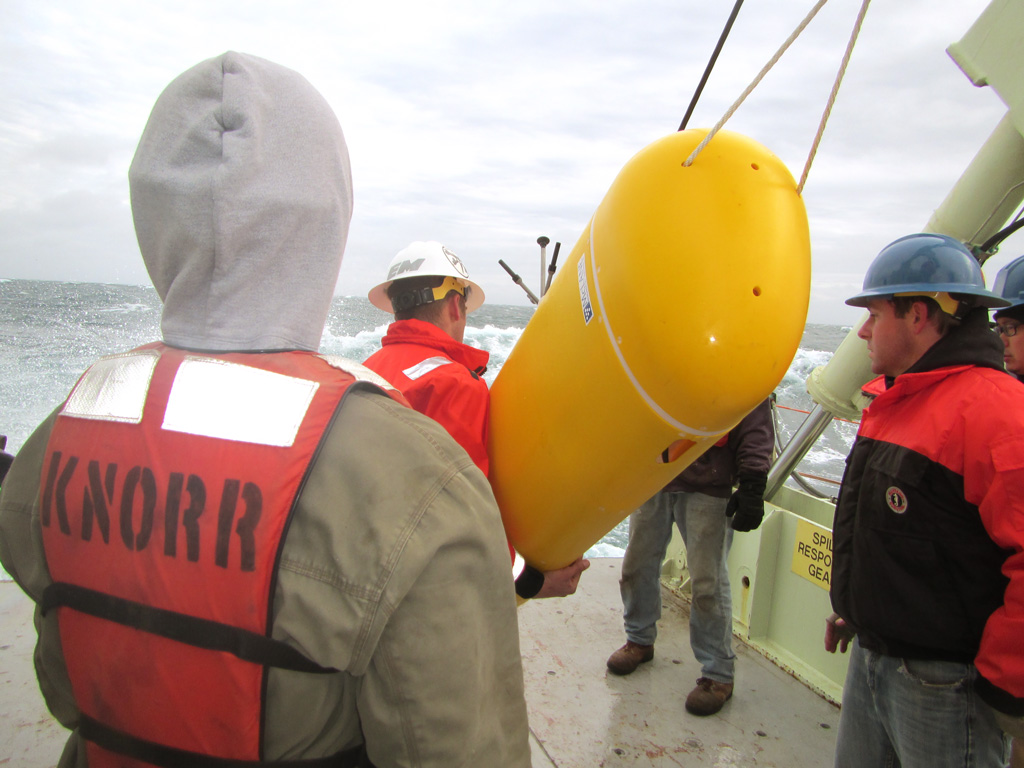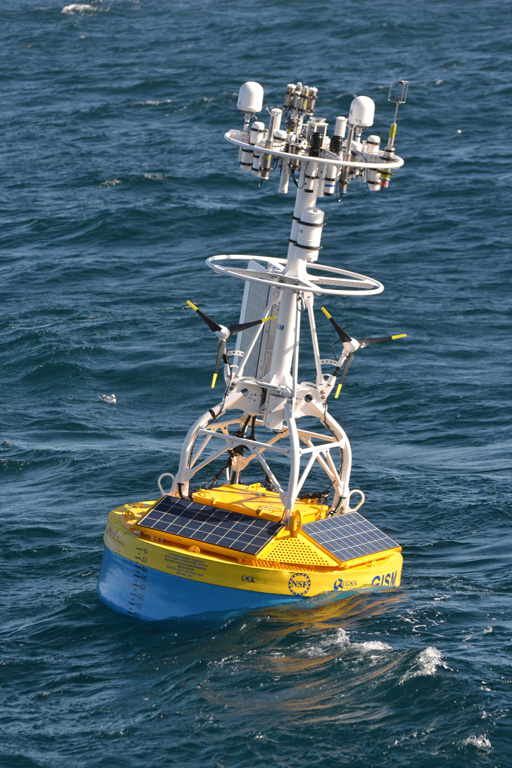Ocean Observatories Initiative (OOI) Deploys Second Global Infrastructure Component

(Click to enlarge) The Irminger Sea Surface Mooring is deployed off the R/V Knorr (Photo Credit: WHOI)
In September, the OOI team deployed their second high latitude, global site in the Irminger Sea, Southeast of Greenland.
The OOI team, led by Woods Hole Oceanographic Institution (WHOI) with partner, Scripps Institution of Oceanography, departed Reykjavik, Iceland September 7 on the R/V Knorr on an eleven day deployment cruise.
The deployment included one large, instrumented surface mooring with battery, wind and solar powered buoy and satellite telemetry, two subsurface mesoscale flanking moorings with fixed sensors and acoustic communications to gliders, one global hybrid profiler mooring with an instrumented subsurface platform and subsurface wire-following profiler, and one open ocean glider with extended endurance and acoustic communications.
In addition to the deployments, the team conducted shipboard sampling, including collection of water samples, in support of field calibration and validation of the platforms and instruments of the deployed array.
The Irminger Sea Array is one of four sites in the OOI focusing on the critical, yet under-sampled, high-latitude regions of the Pacific and Atlantic. It includes a network of moorings that will support sensors for measurement of air-sea fluxes of heat, moisture and momentum; physical, biological and chemical properties throughout the water column.
- (Click to enlarge & for more info)
- (Click to enlarge & for more info)
- (Click to enlarge & for more info)
Click here to see Detailed Irminger Sea Array Instrument Tables.
The OOI, a project funded by the National Science Foundation, is planned as a networked infrastructure of science-driven sensor systems to measure the physical, chemical, geological and biological variables in the ocean and seafloor. The OOI will be one fully integrated system collecting data on coastal, regional and global scales. Greater knowledge of the ocean’s interrelated systems is vital for increased understanding of their effects on biodiversity, ocean and coastal ecosystems, ecosystem health and climate change. OOI will put ocean observing data.
Please continue to visit the OOI Website for the latest news on the program or Submit Comments or Question for the OOI Program.



